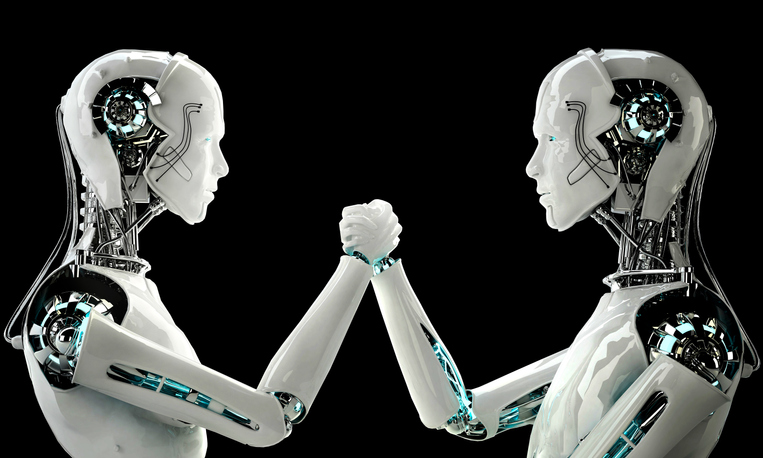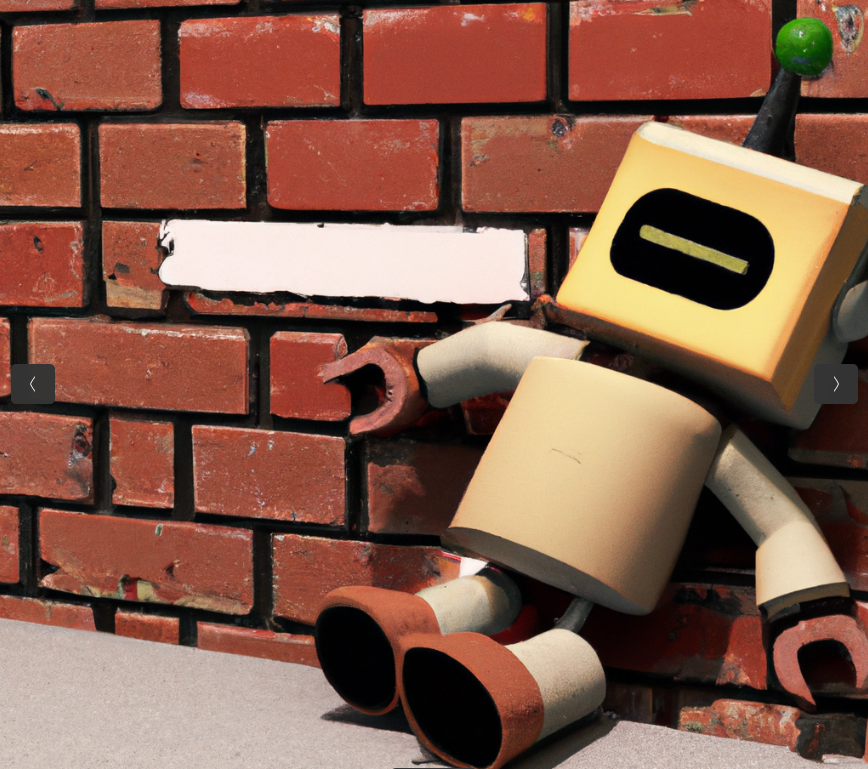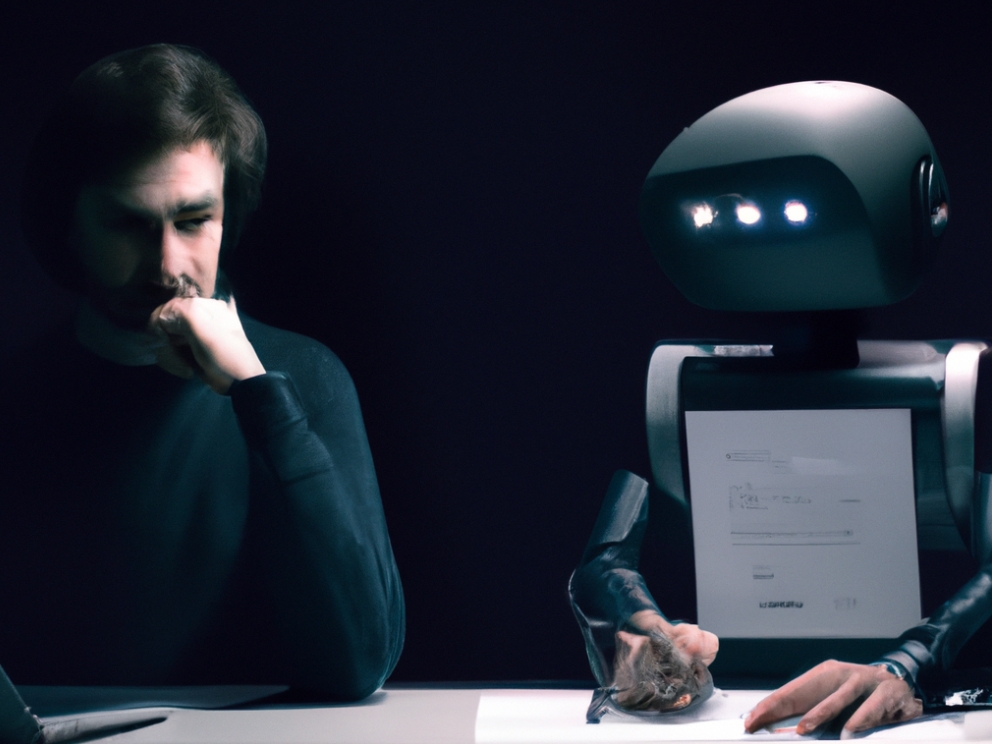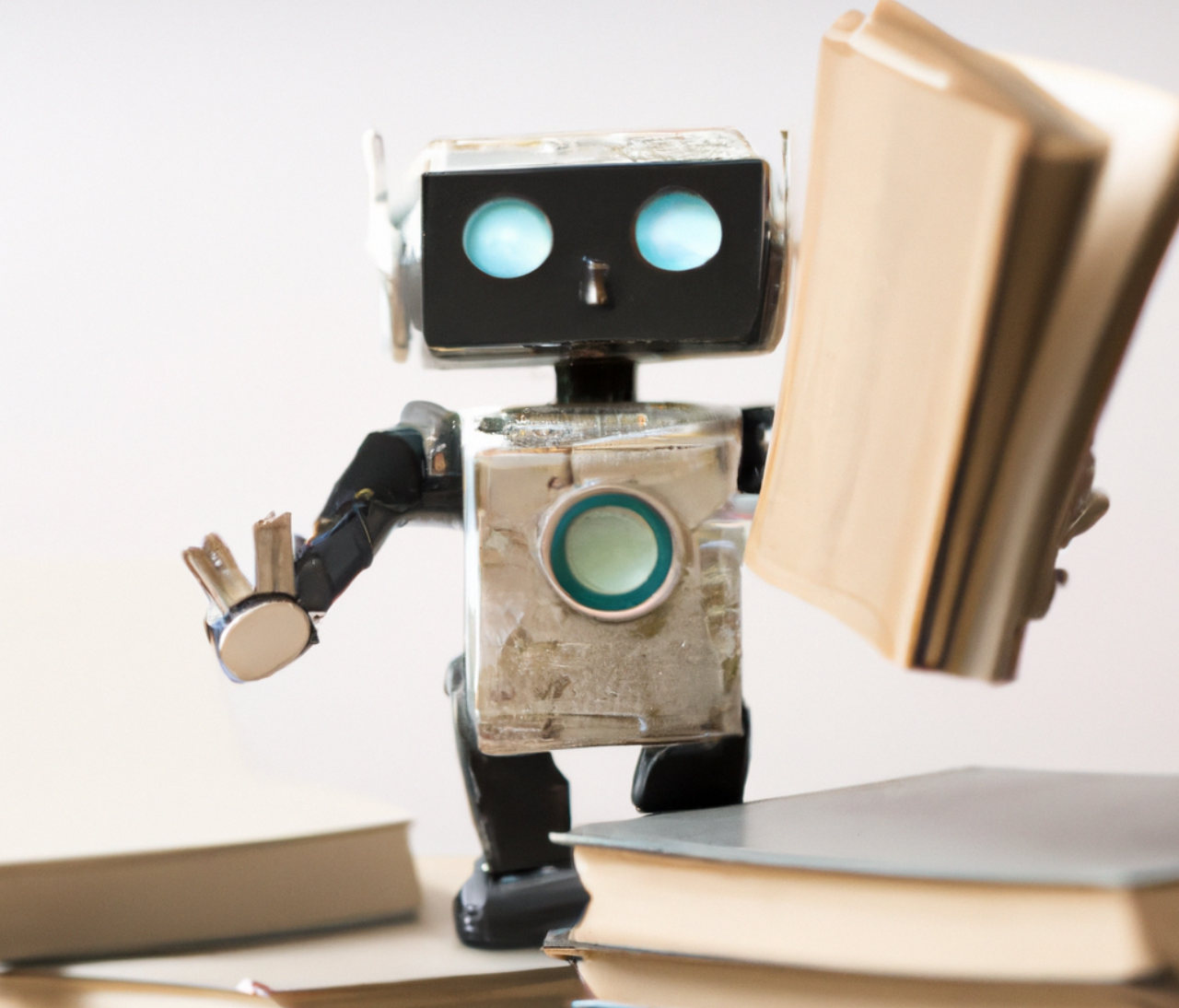Released on Nov 30 2022 chatGPT is a new AI model by the OpenAI research laboratory which previously created the DALL·E image creation AI. OpenAI has received funding from Microsoft and Elon Musk and describes itself as a for-profit company with a non-profit mission.
Rarely, a new technology comes along that has the potential to truly revolutionise our lives but after testing chatGPT and looking into how it works this feels like one of them. In this article, I take a look at the technology and start thinking about applications in the publishing industry.
What is chatGPT
First up let’s look at some sample interactions (You can sign up for free at https://chat.openai.com/ if you want to try this out or learn more)
The tool is designed to work conversationally and is aware of previous interactions when replying to follow-up messages.
Below I ask chatGPT for some information regarding the Frankfurt Book Fair. I then follow up with something more specific.
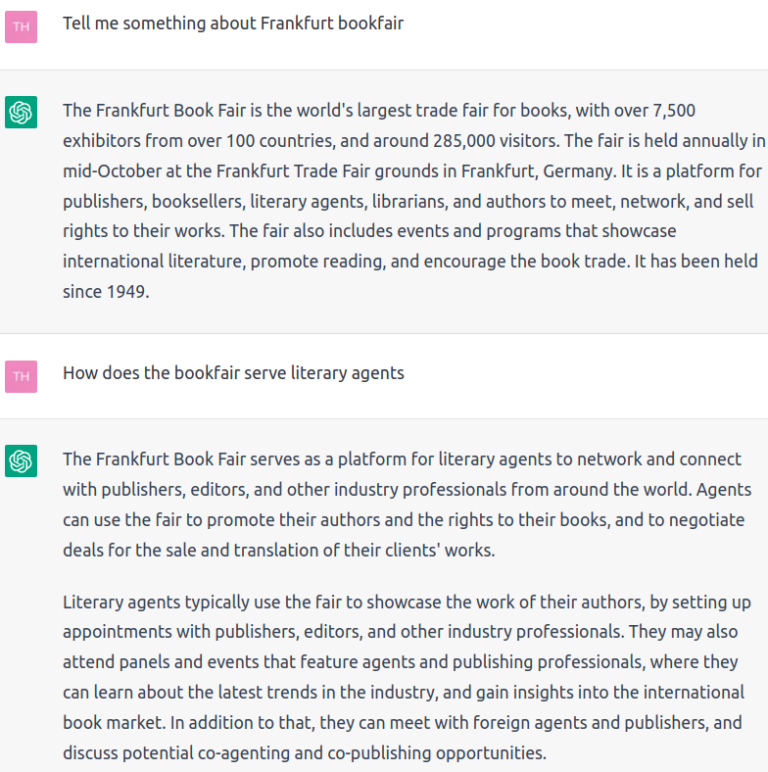
You can see from the interaction that the AI knows a fair bit about Frankfurt Bookfair and is clever enough to realise that we are still talking about Frankfurt Bookfair even though I did not mention this in the second part of the question.
This is pretty cool but so far these answers are not too dissimilar from details that could be found on a web search engine. chatGPT is capable of much more so this time I decided to have some fun and ask chatGPT to generate content for me in the Style of William Shakespeare.
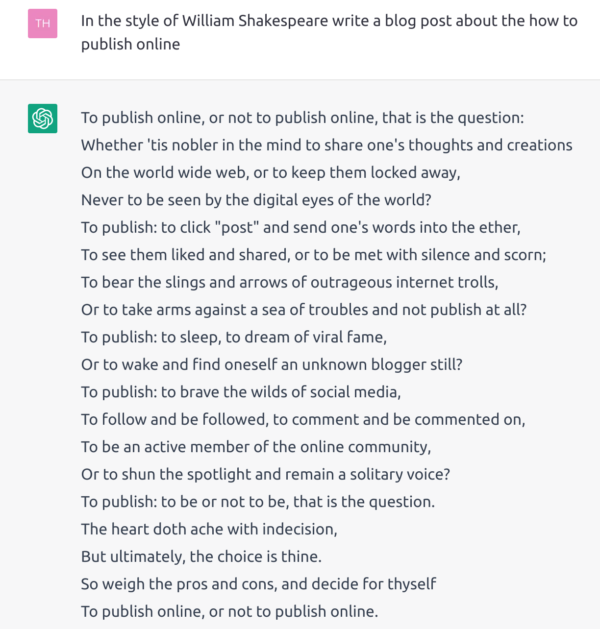
Instantly a post better than any I have ever written… Now we have a example that definitely could not be replicated via google. You can ask chatGPT about almost anything and it will give you some kind of response. Just as a warning it’s not great at poetry.
chatGPT is already starting to have an impact on short-form content generation for instance blog posts and news updates and people are only just starting to think of the multitude of ways this technology might be applied.
This seems like magic! but how does it work?
At the core chatGPT uses a large language model, which means that it was trained on a vast amount of content from the internet, including books, Wikipedia articles, and websites in total it analysed over 300 billion words.
Building on previous tools from OpenAI chatGPT has added a couple of extra layers that appear to make all the difference.
- Firstly they used a new technique called Reinforcement Learning. This used a loop of human feedback to refine and rank the answers that were provided.
- They have adapted the model so that instead of just completing sentences you can ask it questions.
- They have also added the conversation aspects so that the AI is aware of the previous parts of the conversation in the new responses. This appears to be key to having a human-like dialogue.
These are all incremental improvements on work done before at both Google and OpenAI but I think it is fair to say that the result is a conversational experience which produces unique output that is scarily human-like on any subject that the model is aware of. chatGPT is not connected to the internet so can only respond based on the content it was trained on before November 30th 2022.
This is just a brief introduction to the technology, we are going to follow up with a more detailed post regarding the underlying technology and how it could be adapted for other uses.
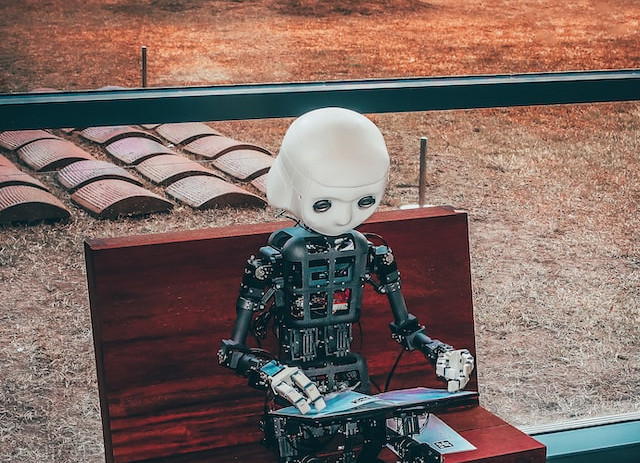
So what will chatGPT be used for
It is too early to realise all of the applications but some become very quickly apparent when you start using the tool
Finding information – You could see this as the ultimate answers engine, so instead of googling for a particular subject and selecting the answer chatGPT (or a future version) will just present the solution. It is worth noting that chatGPT is only as good as the data it was trained on and sometimes the direct answers are not 100% accurate. You could also see field-specific versions for instance Medical, Legal and Academic that are fine-tuned for those industries.
Writing text – In the initial uptake of chatGPT, many of the first applications have been writing short text content for instance marketing and sales copy (or at least help with this) and students using it to write their coursework for them. This is particularly problematic as the tool is currently free..
There is now a scramble to be able to detect content that is created by chatGPT and figure out how best to mitigate its usage within schools and colleges.
Extending tools – chatGPT is available via an API(Application Interface) so developers can integrate this into their tools and are just starting to work on use cases where this can be applied. You could quite easily see a situation where marketing content was generated in real-time in a completely bespoke way for each person based on the information the app knew about you.
Support – AI support bots are used by most companies now. These can be very frustrating, normally either directing you to a help article or performing simple tasks. Systems similar to chatGPT could make these interactions much more natural.
Content translation – chatGPT has translation capabilities, the output of these is reported to need work but if an AI could be trained to a sufficient level then it should be able to produce translated output which is similar to a human translator.
To write books? – This is a little far-fetched at present but some people have tried already(With mixed results). However, chatGPT may well assist with this going forward. Whilst it is an incremental improvement on existing technology chatGPT feels like a very significant step forward.

Does this affect publishing?
After using chatGPT and digging into the technology further it is clear that this and the systems that are built using similar technology are going to change how we access information, create content and interact. Whilst recent aspects of our work and home lives have been incrementally augmented with AI technology (Siri, Alexa, Tesla, Facebook/Twitter) chatGPT feels like a giant leap forward and one which will have a significant impact on all of our lives.
Whilst it may be a while before chatGPT or similar systems are producing literary works that would challenge human-created content you can already see how this and similar systems are at first going to supplement the creative process. In the short term, I’m sure it will be used by the publishing community to help research and produce blog posts, news articles and content. In the longer term, similar technologies will revolutionise the way we access information and will automate the type of tasks that up until now have been seen as skilled work. This will no doubt seriously disrupt the publishing sector and many other aspects of our work and life.
At Arq Works, we are continuing to look into this technology and how it will apply to our clients. In a follow-up post, we will offer a deep dive into the technology. If you are interested and would like to speak about the subject then do reach out to thomas.cox@arq.works
